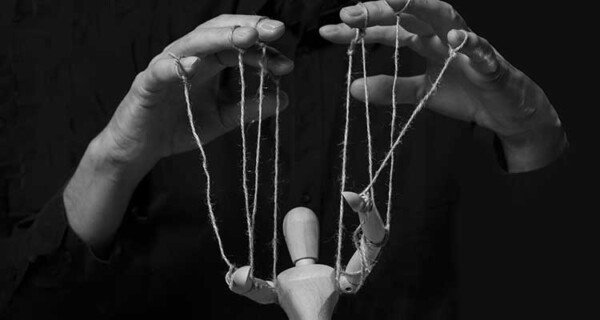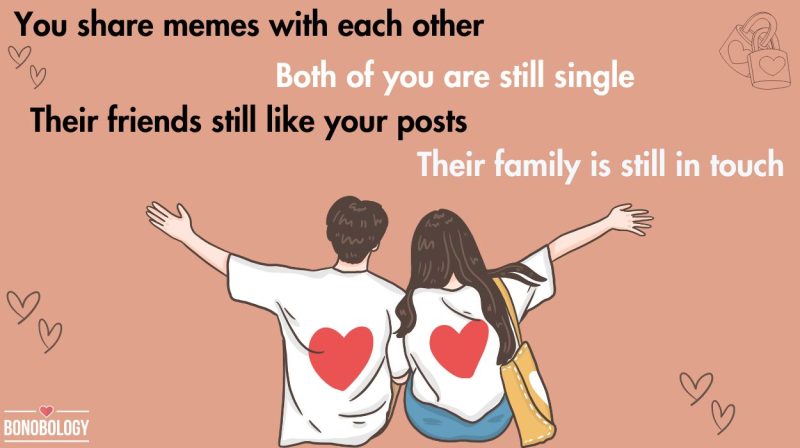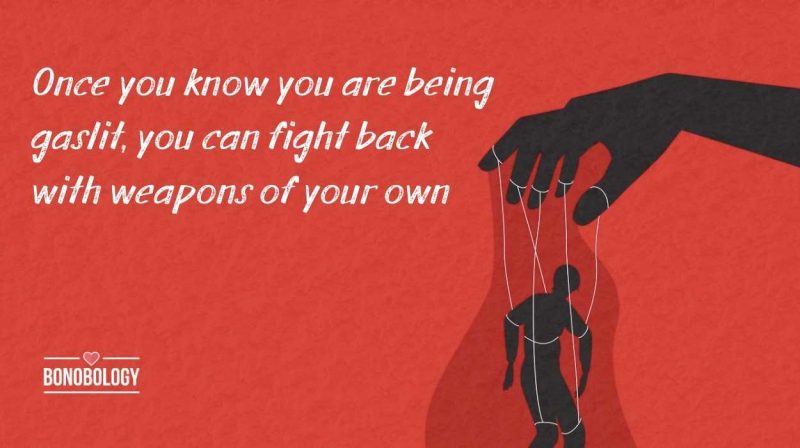Emotional manipulation in relationships can be scary. Far too often, individuals find themselves entangled in relationships where their emotions are played with and their sense of self is undermined. If you’ve ever questioned your own worth, felt trapped in a web of control, or experienced a constant sense of unease, you may be dealing with psychological manipulation.
Let’s take a deeper look at what manipulative emotional abuse is, manipulative personality traits, emotional manipulation tactics, and the signs of an emotionally manipulative partner with insights from psychotherapist Dr. Chavi Bhargava Sharma (Master’s of Psychology), who has an extensive experience in mental health and wellness, including relationship counseling.
What Is Emotional Manipulation In Relationships?
Table of Contents
Emotional exploitation in relationships is a cruel way of creating fear and dependency. Manipulating someone requires knowledge of their insecurities and vulnerabilities as well as a tendency to intimidate. A romantic partner already has the former. They often leave you speechless since you don’t know how to respond to someone who exaggerates, controls, and toys with your emotions.
Martha, a 23-year-old graduate, was in a relationship with an emotionally abusive partner. He would shower his love on her and then suddenly retract by cutting all communication. But she remembered the good times and said yes to him when he proposed marriage. Little did she know the pain that was inevitable. While talking to Dr. Sharma, she exclaimed with a deep breath, “When he starts acting different, know that it’s a red flag. I married a narcissist who controlled me through passive-aggressive manipulation. It’s horrible when a man tries to control you!” and then went on to ask me, ”Do emotional manipulators have feelings for you? Even a little bit of it? I just wish he felt something for me.”
Dr. Sharma has a very straightforward view of what emotional manipulation in relationships looks like. “Emotional manipulation is getting the reaction you want rather than the one that comes naturally to a person,” she says, “Manipulation is when a person finds fault in your reaction and wants to shape it in a way that aligns with their expectations.”
The biggest weapon of manipulators in relationships is intimidating language and behavior. They often are the ones who are controlling the narrative in a relationship. It’s important then to know the signs your partner is emotionally manipulative. Look out for these behaviors to understand manipulative personality traits:
- Controlling or influencing your emotions, thoughts, and behaviors for personal gain
- Using manipulative tactics to make you doubt yourself, feel guilty, or question your own reality
- Shifting blame onto you and avoiding taking responsibility for their actions or behaviors
- Gaining power and control over you often resulting in an imbalanced and unhealthy relationship dynamic
Why do partners manipulate in a relationship?
Dr. Sharma believes, “Emotional manipulation is about power. Emotionally manipulative people want power over you, your emotions, and your life. The reason they do it is that they feel inadequate and insecure about themselves.”
Also, more often than not, they do not have any insight or only partial awareness of their manipulative behavior. They play around with the jargon of influence vs manipulation, broadcasting their emotional intelligence. Emotionally manipulative people often don’t think they are doing anything wrong. They feel it’s their right to treat someone that way. So if you wonder, “Can someone be manipulative and not know it?”, then the answer is a most definite yes.
Adding on to that, the findings of a thesis indicate that there could be multiple reasons driving the manipulative partner such as:
- Control – Your partner manipulates you to make you a pawn in their hand
- Narcissism- The study refers to this as “intimate terrorism”
According to another study, sexual favors are another motivation for manipulators and are one of the manipulating personality traits. This study conducted on college students found that 30% of men and 14% of women admitted manipulating their partners to convince them to be sexual initmate. This is one of the acts of subtle controlling behavior where you are completely taken aback when you realize you’ve been fooled.
13 Signs You Are Being Emotionally Manipulated
So, how to tell if you are emotionally manipulated? Especially when tactics that manipulators use are most often subtle and rarely explicit. It forces the one on the receiving end to self-doubt and wonder if they are being overly sensitive. Well, the first thing to reflect on is, do you find yourself questioning your reactions more than usual? If yes, then there’s a good chance that you are being manipulated.
Here are a few warning signs and types of emotional manipulation in relationships with common examples to look out for. If you do see these signs in your better half, try to not ignore them like Martha did, at the beginning of her relationship when she agreed to get married to a narcissist.
Related Reading: 13 Tell-Tale Signs Of Manipulation In A Relationship
1. Your feelings are disregarded
When there’s emotional manipulation in relationships, the perpetrator often disregards your feelings. Dr. Sharma says, “Feelings can be disregarded in more than one way. It could mean your needs are not being met, or maybe you are not being understood. When your partner starts disregarding your emotions in a relationship, everything you say will be overshadowed by their views and needs.”
Example,
- They are not interested in how you feel about an issue or conversation or,
- In an abusive relationship, they frequently dismiss your feelings and opinions as unimportant
- You feel like your thoughts and feelings do not count for much in the big picture
2. They always get their way
Your partner has a penchant for getting their way. If you find yourself constantly adjusting to your partner’s likes and dislikes, they might be using emotional manipulation tactics on a daily basis to build a relationship that is solely focused on them. This is one of the signs of emotional abuse in relationships. Emotional manipulation in romantic relationships is their way of getting you to comply with their demands. Classic 101 of manipulative behaviors.
Example,
- If you don’t want to move out of town, they might threaten to leave you
- Your partner believes in the “my way or the highway” approach
3. They demand all your attention
It is a common trait of emotional manipulation in marriage as well as premarital relationships. They insist on being the center of your world, expecting you to prioritize them over everything else in your life. They can even turn to passive-aggressive behavior to fulfill their desire for attention. This constant need can make you feel suffocated, leaving little room for your own needs, aspirations, and personal growth.
Example,
- They may insist that you cancel plans with friends or family to spend time exclusively with them
- If you do things or have interests that don’t include them, they could feel possessive or envious
4. They emotionally blackmail you
Another sign of people who manipulate is the use of emotional blackmail to keep themselves at the top of everyone’s priority list – especially yours! They want you to spend every waking moment together. This kind of behavior is one of the signs of emotional blackmail because your partner is trying to control your emotions by making you feel guilty or afraid of their reactions. Sometimes, they even use information from your life history to demean you. “What is it called when someone uses your past against you?”, Martha asked in one of her therapy sessions. Well, the answer is manipulation by attacking you at your most vulnerable points.
Example,
- If you don’t answer the phone right away when they call, they get upset and accuse you of not caring about them
- When you’re married to a narcissist, you often hear them say, “If you don’t stop hanging out with your friends and make time for me, I will leave you” or “If you leave me, I will kill myself”
Related Reading: Subtle Forms Of Emotional Abuse
5. Their actions don’t match their words
If you’re asking yourself, “How to tell if you are emotionally manipulated?”, then this is a sure telltale. They may say they care about you while they are cheating on you or repeatedly doing things that seem to harm you. And they are always sneaky in their ways. Your partner may not say ‘no’ to you, rather they always sidestep your requests. Or they might apologize to you again and again but forget that sorry without change is manipulation. This is subtle but is definitely one of the signs of emotional abuse.
Example,
- They might promise to be more supportive but consistently dismiss your concerns or invalidate your emotions like you’re imagining things
- They might frequently cancel plans, make last-minute changes, or keep you in a constant state of uncertainty about the future of the relationship
6. They always guilt trip you
In a relationship where you are manipulated, the manipulator possesses the skill of expertly guilt-tripping you, burdening you with the weight of their happiness. They use subtle or direct tactics and make use of the guilt trip fallacy just so you feel accountable for their emotional well-being, making it seem like it’s your sole responsibility to fulfill their needs and desires. This eventually negatively impacts you.
Example,
- Your manipulative spouse/partner can engage in verbal manipulation by emphasizing how unhappy they are and implying it’s your fault
- Your guy makes you feel guilty for spending time or pursuing activities outside the relationship – signs he is controlling and manipulative
7. It’s in their habit to gaslight
In a toxic union, the manipulators in relationships master the art of twisting your perception of reality, casting doubt on your memory and sanity. They twist events, distort facts, and gaslight you into questioning your own recollection of past experiences. With skillful manipulation, they make you second-guess yourself, leaving you feeling insecure, disoriented, and confused to the extent where you start questioning your own sanity. If this happens in your relationship, then it is one of the signs your partner is emotionally manipulative
Example,
- Saying something like, “Why are you upset with me for no reason at all? I was drunk and it was just a kiss; there is nothing to be jealous or possessive about it. You are blowing up the issue out of proportion”
- “I never said that. You must have misunderstood” – a common verbal abuse statement
Related Reading: 12 Warning Signs Of Gaslighting And 5 Ways To Deal With It
8. They often give you the silent treatment
Another sign of emotional manipulation in marriage or a relationship of any sort is when they employ silence to exert control and punish you for perceived wrongdoings. By withholding direct communication and shutting you out, they aim to make you feel anxious, desperate for their attention, and responsible for their withdrawal. This becomes a powerful tool to make you feel unsafe.
Example,
- After a conflict or disagreement, they abruptly stop talking to you for days without any explanation
- Whenever you express a differing opinion, they respond by refusing to acknowledge your presence or engage in any form of communication
9. They never take accountability
They shift blame onto you, making you shoulder the weight of their mistakes and problems by often asking probing questions. They artfully twist the narrative, manipulating you into believing that their failures or misfortunes are somehow your faults. This blame-shifting is one of the most prominent types of emotional manipulation in relationships. It leaves you feeling guilty, constantly striving to fix things that aren’t your responsibility, and erodes your self esteem. If this happens to you, then it is one of the signs of being used in a relationship.
Example,
- They might say something like, “You made me go pick up the kids and so I got late for the party”
- They forget to pay their bills on time, but instead of taking responsibility, they blame you for distracting them or not reminding them
10. They are a master of self-victimization
They often tend to be playing the victim, skillfully evoking sympathy and deflecting responsibility. In every situation, they craft a narrative that positions them as the innocent party, unfairly treated by the world. Their victim mentality becomes a shield, protecting them from accountability and making you feel guilty for anything that goes wrong. This is one of the very significant signs of manipulation.
Example,
- Saying, “I’ve always been there for you, running errands, managing things, lending you support, everything. And now, when I need you, you are nowhere to be seen!”
- “You’re always against me. No one understands what I go through”

11. They have no regard for your boundaries
They consistently trample over your limits, showing little regard for your feelings or needs. They steamroll over your personal space and emotional well-being. Whether it’s ignoring your boundaries, dismissing your concerns, or pushing you into uncomfortable situations, they demonstrate a clear disregard for your autonomy.
Example,
- A manipulative person will invade your personal space or access your private information without permission
- Snooping through your belongings, reading your messages, or insisting on being present even when you’ve asked for time alone
12. They instigate jealousy
One of the other signs of manipulation is when they purposefully pull the strings to keep you on the edge and dependent on their validation. With calculated precision, they create situations that incite jealousy, making you question your worth and desirability. By stoking the fires of insecurity, they manipulate you into seeking their constant reassurance and approval.
Example,
- Flirting with others in front of you
- They carefully curate their social media presence, posting exaggerated accounts of their exciting life while subtly excluding you from the narrative
13. They are charming as well – love bombing
They shower you with overwhelming amounts of love, affection, and attention making you feel special. At first, it feels beautiful and mesmerizing. You feel that you have been swept off your feet. However, they have a hidden agenda that serves them to gain your trust and establish control over your emotions. This is also called love manipulation or love bombing. They make you wonder how can this person ever be cruel. When the cruelty starts though, your love for them makes you compensate for their behavior by answering in the affirmative to this repetitive question, “Do emotional manipulators have feelings for you?”
Example,
- Overwhelming you with grand gestures and excessive flattery in the early stages of the relationship or,
- They constantly say things like, “I may get mad but I still love you”
Related Reading: How To Differentiate Between Love Bombing And Genuine Care
5 Things You Can Do If You Are Emotionally Manipulated
The above tactics are typically used by a manipulative person as a way to control their significant others in relationships. Emotional manipulation in romantic relationships can be debilitating. It isn’t good for you and your other personal relationships including your family members. It can really mess with your head. Effects of emotional manipulation on men’s and women’s health can include,
- Feeling confused
- Sense of worthlessness
- Hopelessness
- Fear
It can even lead to mental health disorders such as,
- PTSD,
- Depression,
- Anxiety and
- Suicidal ideations
You might be asking yourself, “Can manipulators change?”, to keep that hope that the good times you had with your partner will roll again. The hurt, the pain, and the helplessness are real and overwhelming. They might make you feel like there is nothing you can do about it, but it doesn’t have to be that way, especially once you learn to spot the signs of an emotionally manipulative partner. Here are five steps that you can take if you are wondering how to deal with emotional manipulation in a relationship.
1. Identify the signs and behaviors
The first step is always knowing the signs. When you recognize patterns of your partner, you validate your experiences where you feel bad which potentially can empower you to take action. Learn about these tactics and red flags. Knowledge is power, and by understanding the dynamics of emotional manipulation, you can better protect yourself and make informed decisions.
Awareness of these signs is, in fact, the first step in this journey of reclaiming yourself and your voice. It helps you start the process of,
- Seeking support including professional help
- Setting boundaries and communicating with them effectively
- Gaining clarity into the steps you need to take toward healing
Related Reading: Why Do People Stay In Abusive Relationships?
2. Trust your gut instinct
Your intuition is a powerful tool that should never be ignored. When that little voice inside you starts whispering that something feels off, pay attention. Trusting yourself and your feelings is crucial in identifying emotional manipulation. Your gut instinct serves as a compass guiding you toward what is genuine and healthy in a relationship.
It’s common to doubt yourself when faced with emotional manipulation, but remember that your inner voice is your valuable ally. Believe in your perceptions and experiences and it will help you break free from manipulation, rediscover your self-worth, and create a healthier, more authentic connection. This is the most important step in learning how to deal with emotional manipulation in a relationship.
3. Set your boundaries
Setting boundaries can be difficult, especially if you are married to a manipulative spouse and if either you or your partner has low self-esteem because it often feels selfish. However, it is anything but that and it’s important that you remind yourself of this. Take the time to clearly define your boundaries and communicate them assertively. Be unwavering in expressing what you will and won’t tolerate. Remember, it’s crucial to prioritize your emotional well-being above all else. You can start by,
- Taking the time to reflect on your values, needs, and what makes you feel safe and respected in a relationship
- Using “I” statements to assert what you will and won’t accept, such as “I need to be treated with respect and honesty”
- Stick to your boundaries and enforce them consistently
4. Seek support
When navigating the complexities of a relationship full of abuse, seeking support is vital. Reach out to those who have your best interests at heart – trusted friends, understanding family members, or even a trauma-informed therapist who specializes in relationship dynamics. Bonobology’s panel of experienced therapists is right here to help you navigate through this kind of emotional abuse. Having a loved one who believes in you can empower you to make the necessary changes and find the strength to prioritize your own well-being.
5. Prioritize self-care
Amidst the challenges of unhealthy relationships and codependent manipulation, don’t forget to prioritize self-care as a form of healing and empowerment. Engage in activities that bring you joy and nourish your mind, body, and soul. Whether it’s pursuing your hobbies, practicing mindfulness, or simply dedicating time to rest and recharge, prioritize your well-being. By taking care of yourself, you strengthen your resilience and regain the power to create a healthier and happier future.
Emotionally abusive behavior and domestic violence are two sides of the same harmful coin, where one targets the emotions and the other encompasses a broader range of abusive and toxic behaviors. Both require attention and support to break free from their grip and create a safer, healthier environment.

Key Pointers
- Emotional manipulation in relationships is essentially about gaining and remaining in control
- If you suspect emotional manipulation in your relationship, seek support, set boundaries, and prioritize your own happiness and self-care
- Emotional manipulation in romantic relationships can sometimes be too subtle to notice unless you know what to look out for
- Pay attention to their language and their pattern of communication, it’ll tell you a lot
No one deserves to be in a manipulative relationship, and dating is stressful enough without people trying to take advantage of you. So give it your full attention to recognize when someone is trying to emotionally manipulate you. It is extremely difficult to do so, therefore, take it slow. However, if they continue to do it — especially if they do it after you have clearly iterated that it’s violating your boundaries — it’s time to let them go and walk away. Remember, you are not alone in your journey of healing. Trust in your inner resilience and embrace your worth. You deserve love, respect, and genuine happiness. Never let anyone ever tell you otherwise.
This post has been updated in June 2023.
The Relationship Triangle: Meaning, Psychology And Ways To Deal With It
Causes & Signs Of An Emotionally Exhausting Relationship And How To Fix Them
Should I Break Up With My Boyfriend? 11 Signs It Is Probably Time
Your contribution does not constitute a charitable donation. It will allow Bonobology to continue bringing you new and up-to-date information in our pursuit of helping anyone in the world to learn how to do anything.























Featured
Am I Moving On Too Quickly After Death Of Spouse—How To Decide
15 Signs You’ll Get Back Together With Your Ex
How To Get Over Trust Issues — A Therapist Shares 9 Tips
Learn How To Forgive Yourself For Hurting Someone You Love
How To Find Peace After Being Cheated On — 9 Tips From A Therapist
How To Forgive A Cheating Husband: 15 Helpful Tips
35 Disturbing Signs Of Gaslighting In A Relationship
What Is Narcissistic Ghosting And How To Respond To It
‘My Husband Starts Fights And Then Blames Me’: Ways To Cope
How To Rebuild Your Life After The Death Of A Spouse: 11 Expert-Backed Tips
My Husband Died And I Want Him Back: Coping With Grief
“Am I Unlovable” – 9 Reasons You Feel This Way
11 Signs Your Girlfriend Was Sexually Abused In The Past And How To Help Her
Coping With Breakups: The Must-Have Breakup Apps For Your Phone
15 Signs You Are Wasting Your Time Trying To Get Your Ex Back
Why Are You Obsessed With Someone You Barely Know — 10 Possible Reasons
33 Phrases To Shut Down Gaslighting And Silence Gaslighters
The Emotion Wheel: What It Is And How To Use It To Build Better Relationships
The Role Of Supportive Relationships In Addiction Recovery
7 Signs You Have A Verbally Abusive Wife And 6 Things You Can Do About It